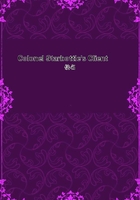"Oh, cease! must hate and death return? Cease! must men kill and die? Cease! drain not to its dregs the urn Of bitter prophecy. The world is weary of the past, Oh, might it die or rest at last!"Perhaps the perfect beauty of Greek civilisation shall never be restored; but the wisdom of its thinkers and the creations of its artists are immortal, while the fabric of the world"Is but a vision;--all that it inherits Are motes of a sick eye, bubbles and dreams."It is curious that for three of his more considerable works Shelley should have chosen the form of drama, since the last thing one would say of him is that he had the dramatic talent. 'Prometheus' and 'Hellas', however, are dramas only in name; there is no thought in them of scenic representation. 'The Cenci' (1819), on the other hand, is a real play; in writing it he had the stage in view, and even a particular actress, Miss O'Neil. It thus stands alone among his works, unless we put beside it the fragment of a projected play about Charles I (1822), a theme which, with its crowd of historical figures, was ill-suited to his powers. And not only is 'The Cenci' a play; it is the most successful attempt since the seventeenth century at a kind of writing, tragedy in the grand style, over which all our poets, from Addison to Swinburne, have more or less come to grief. Its subject is the fate of Beatrice Cenci, the daughter of a noble Roman house, who in 1599 was executed with her stepmother and brother for the murder of her father. The wicked father, more intensely wicked for his grey hairs and his immense ability, whose wealth had purchased from the Pope impunity for a long succession of crimes, hated his children, and drove them to frenzy by his relentless cruelty. When to insults and oppression he added the horrors of an incestuous passion for his daughter, the cup overflowed, and Beatrice, faced with shame more intolerable than death, preferred parricide. Here was a subject made to Shelley's hand--a naturally pure and gentle soul soiled, driven to violence, and finally extinguished, by unnameable wrong, while all authority, both human and divine, is on the side of the persecutor. Haunted by the grave, sad eyes of Guido Reni's picture of Beatrice, so that the very streets of Rome seemed to echo hername--though it was only old women calling out "rags" ('cenci')--he was tempted from his airy flights to throw himself for once into the portrayal of reality. There was no need now to dip "his pen in earthquake and eclipse"; clothed in plain and natural language, the action unfolded itself in a crescendo of horror; but from the ease with which he wrote--it cost him relatively the least time and pains of all his works--it would be rash to infer that he could have constructed an equally good tragedy on any other subject than the injured Beatrice and the combination, which Count Francesco Cenci is, of paternal power with the extreme limit of human iniquity.
With the exception of 'The Cenci', everything Shelley published was almost entirely unnoticed at the time. This play, being more intelligible than the rest, attracted both notice and praise, though it was also much blamed for what would now be called its unpleasantness. Many people, among them his wife, regretted that, having proved his ability to handle the concrete, he still should devote himself to ideal and unpopular abstractions, such as 'The Witch of Atlas' (1821), a fantastical piece in rime royal, which seems particularly to have provoked Mrs. Shelley. A "lady Witch" lived in a cave on Mount Atlas, and her games in a magic boat, her dances in the upper regions of space, and the pranks which she played among men, are described in verse of a richness that bewilders because it leads to nothing. The poet juggles with flowers and gems, stars and spirits, lovers and meteors; we are constantly expecting him to break into some design, and are as constantly disappointed. Our bewilderment is of a peculiar kind; it is not the same, for instance, as that produced by Blake's prophetic books, where we are conscious of a great spirit fumbling after the inexpressible. Shelley is not a true mystic. He is seldom puzzled, and he never seems to have any difficulty in expressing exactly what he feels; his images are perfectly definite. Our uneasiness arises from the fact that, with so much clear definition, such great activity in reproducing the subtlest impressions which Nature makes upon him, his work should have so little artistic purpose or form. Stroke is accumulated on stroke, each a triumph of imaginative beauty; but as they do not cohere to any discoverable end, the total impression is apt to be one of effort running towaste.















